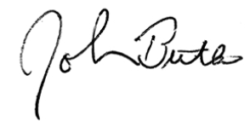- Artificial intelligence is “colliding” with our world
- Where some see danger, others see opportunity
- A sci-fi classic can help to illustrate the point
One of the most influential works of early science fiction, When Worlds Collide, was co-authored by Edwin Balmer and Philip Wylie and published in 1933. A sequel, After Worlds Collide, followed in 1934. The two books are credited with inspiring the classic Flash Gordon stories and even Superman comics.
Rocket technology was still very much in its infancy at the time, yet the authors imagined a future in which it was not only far more advanced, but capable of literally saving humanity from complete destruction.
The story begins with the discovery by Sven Bronson, a Swedish astronomer of two rogue, extra-solar planets headed, for an unknown reason, towards Earth. Bronson calculates their trajectories and concludes that, within less than a year, they will pass right through the heart of the solar system.
Although they will not impact the earth directly, their gravitational power, orders of magnitude greater than that of the moon, will cause massive tides, shift Earth’s orbit and potentially tear it apart entirely.
A race against time then ensues: to develop a rocket capable of taking a large number of passengers out of harm’s way. While nearly all of Earth’s inhabitants are certain to die, humanity could thus be saved if the rocket were capable of travelling to and landing on an inhabitable planet.
To make a long story short, rocket scientists in both the US and Europe build rockets they hope will be able to do the job. Believing they have succeeded, multiple rockets launch from multiple countries in the nick of time, but the rockets subsequently lose contact with one another.
The first story ends when the crew of a lone US-launched rocket discovers that one of the rogue planets has settled into a stable orbit around the sun and appears to be habitable for human life. With no where else to go, they land.
Not only do they indeed discover that the planet can support human life, but they find a road. The new planet is, or at least was, inhabited. The first story ends there, with the few remaining survivors of all humanity wondering what fate or opportunity awaits.
From sci-fi to AI
There are few more frightening prospects than that Earth is going to be destroyed in the not-too-distant future. But the way some people speak about artificial intelligence (AI), they seem to fear it nearly as much.
Dystopian science fiction is replete with AI gone rogue in various forms: sentient yet malicious computers, insane robots, thought-police, mind-control… Much as with the rogue planets discovered at the start of When Worlds Collide, some fear the collision of AI with our world, too.
My colleague Sam Volkering thinks rather differently. To him, AI is a tool like any other, just an order of magnitude more powerful. If used properly, it can inform practically any investment process and enhance performance. His Substack column, AI Collision, takes an entertaining approach to the subject.
Sam has much experience investing in AI and AI-related companies. Now, he’s actually using AI to invest in AI. I like to think of that as AI2: something potentially exponentially better.
Sam’s newest service, Predictive Edge, uses AI in multiple ways both to find new opportunities and to time trades. So far, the results have been impressive, with nearly every recommendation in profit.
While it might be a stretch to compare AI to a collision of worlds, in certain respects the analogy holds. AI really is a new world, one colliding with and potentially changing all that is old and familiar. It is already upending many aspects of our lives, whether we like it or fear it or not. Sam sees it changing the world of investing and he’s determined to take advantage of the opportunity, before it takes advantage of him. (And pass his knowledge on to you too.)
The sequel to When Worlds Collide, After Worlds Collide, tells the story of the struggle for Earth’s orphan inhabitants to find a way to survive on their new planet home. It is a close run thing, but in the end, they not only survive but thrive as never before.
While intimidating for certain, the greatest opportunity of all is surely the discovery of an entirely new world.
Until next time,

John Butler
Investment Director, Fortune & Freedom



